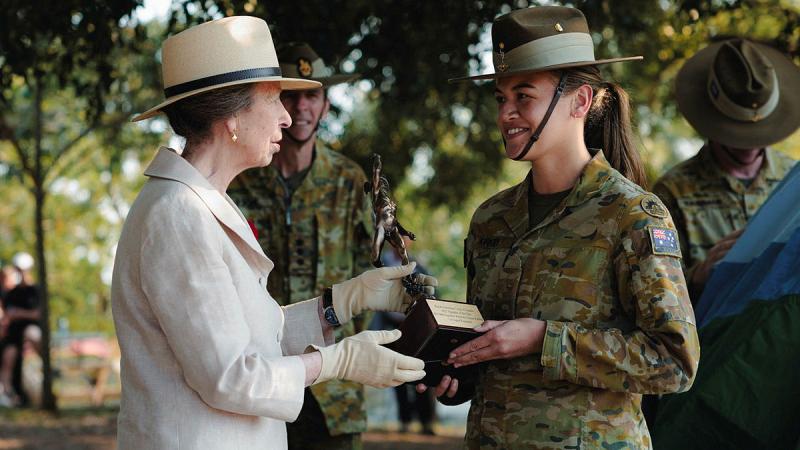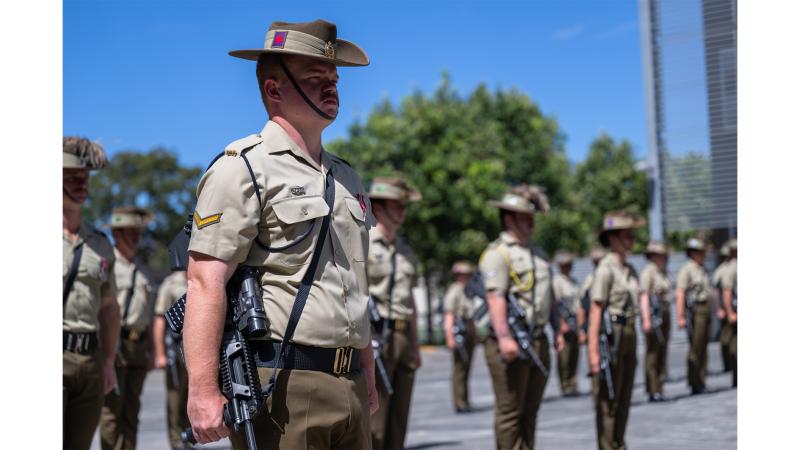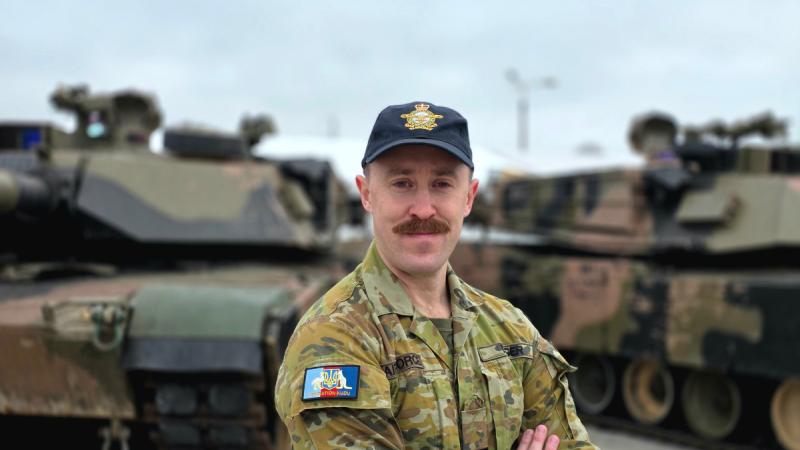27 June 2025
When Peter Mengel left Army, his world fell apart.
Decades of service left the Afghanistan veteran with post-traumatic stress disorder.
“I was sleeping two hours a night and life wasn’t good,” Mr Mengel said.
When he was paired with a labrador retriever named Peaches under the Defence Community Dogs Assistance Program, things took a turn for the better.
“Pure and simple, it was life changing,” Mr Mengel said.
“I felt very restricted before. Peaches gets me out and about to coffee and the shops.
“It’s a good starting point and what we need to do to move on.”
Defence Community Dogs is an independent program that provides assistance dogs to current and ex-serving personnel at no cost.
Since 2014, more than 100 dogs have been trained and paired with people like Mr Mengel.
Each dog receives more than 250 hours of training over about 10 months, so they can interpret signs of stress and de-escalate PTSD-related anxious behaviour.
Every dog is either a rescue or rehomed dog, and are trained by inmates at Bathurst Correctional Centre.
'It might be rubbing their face or beard, biting fingernails or rubbing their thumbs together. Whatever they do then we teach the dog to alert the human to that behaviour'.
They can switch on a light following night terrors, provide a personal space barrier and bring awareness to signs of stress, such as a shaking foot, through nuzzling and touch.
All dogs receive the same initial training, but the final months of training are bespoke once a dog is selected for an individual.
Defence Community Dogs trainer Alison Abbott said they can be taught to look for any type of behaviour.
“It might be rubbing their face or beard, biting fingernails or rubbing their thumbs together. Whatever they do then we teach the dog to alert the human to that behaviour,” Ms Abbott said.
But the training doesn’t stop once a dog is handed over.
'I tell everyone when they ask if she’s in training. I tell them I am, just that I’m not the one wearing the L-plates.'
Mr Mengel has to complete online assessments over the following months to show he is capable of working with Peaches.
Until they graduate, Peaches wears her dog-in-training harness.
Mr Mengel thinks it’s more like human-in-training.
National PTSD Awareness Day is June 27, a day to reduce the stigma and for those with PTSD to recognise they are not alone.
Mental Health and Wellbeing Branch Acting Director General Group Captain Michel Devine said: “Defence is aiming to raise awareness of PTSD, its impacts and treatments. We are fostering a culture that challenges stereotypes builds empathy and acceptance to reduce stigma. You are not alone.
“We can all contribute to creating an environment where people feel safe and are encouraged to seek support.”
June 27 is National PTSD (post-traumatic stress disorder) Awareness Day. If you need support, help is available.
| Current ADF personnel | Chain of command Garrison Health Centres |
| Current ADF reservists | Reserve Assistance Program - 1300 687 327 |
| Families of current ADF personnel | Defence Member and Family Helpline - 1800 624 608 |
| Veterans and their families | Open Arms - 1800 011 046 |
| Current APS Defence employees | Employee Assistance Program - 1300 687 327 |
| Former APS Defence employees | Lifeline Australia - 13 11 14 |


